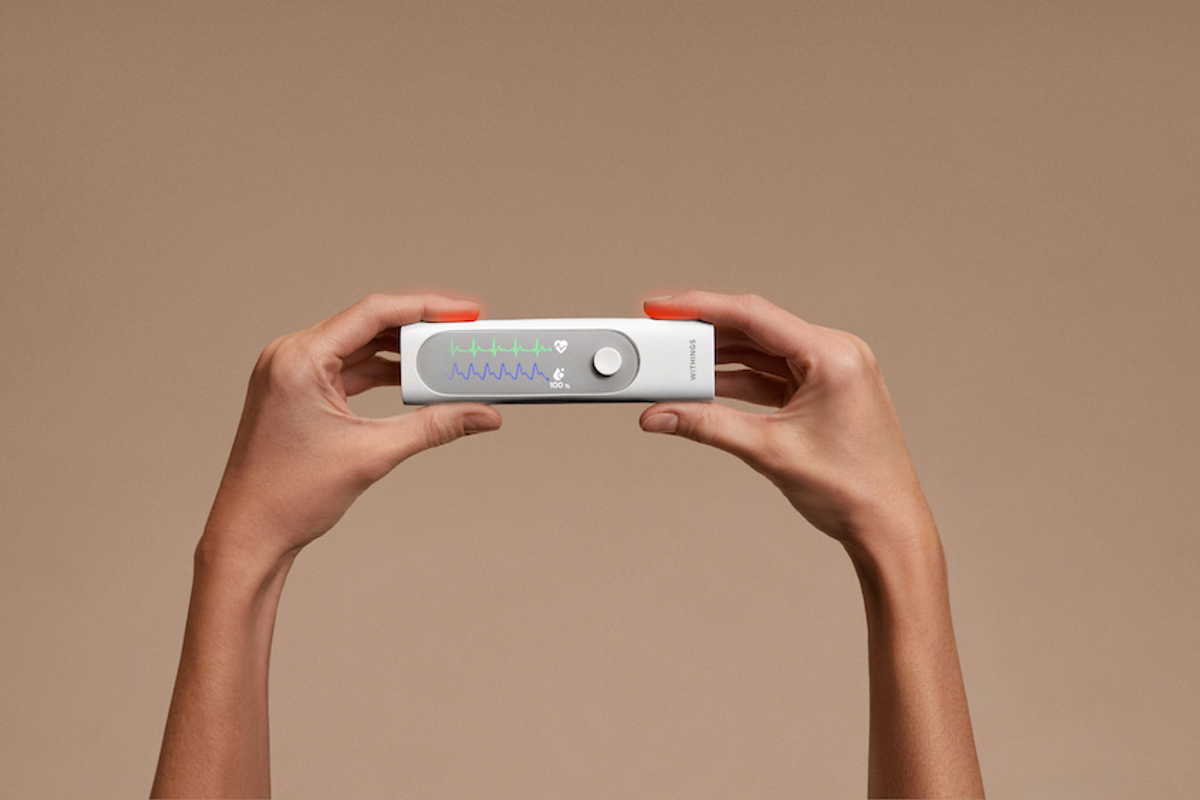Health Devices

Withings
HealthTech Revolution: Wearables, AI, and the Personalized Future of Healthcare
Empowering Your Well-being: The Rise of Smart Wearables and AI in Medicine

Empowering Your Well-being: The Rise of Smart Wearables and AI in Medicine
Is anyone up for the personalized future of healthcare? Well, it's coming. In fact, there have been glimpses of it over the past few years.
Wearables powered by the IoT (Internet of Things), comprehensive health data through electronic health records (EHRs), cloud technologies, artificial intelligence, and other advancements drive personalized patient experiences like never before.
Let's examine how these technology trends can improve health outcomes and accelerate personalized medicine in the near future.

The future of personalized healthcare is pretty much what the name says. Technologies will soon become more accessible to help healthcare providers create personalized experiences for each patient. The future of healthcare personalization will require the following:
Once healthcare organizations master each of these pillars, they can create more personalized treatment plans, drive better clinical decisions, and ultimately, improve patient care. Henry Meds is an example of a company that uses both wearables and AI to offer a comprehensive solution for chronic pain management.
The company provides a smart patch to measure pain intensity, location, frequency, and duration. The patch also connects to a mobile app that uses AI to generate customized pain relief plans based on the user’s preferences, goals, and medical history. Henry Meds aims to help people with chronic pain live better by empowering them with data-driven tools to optimize their treatment outcomes.

Moreover, human patients aren't the only ones to benefit from precision medicine. Pet owners who want to provide the best care for their furry companions can benefit from pet insurance for multiple pets. This coverage can cover the costs of veterinary visits, preventive care, and even emergency treatments.
Smart devices such as collars, trackers, and cameras allow pet owners to monitor their pets’ activity, location, and behavior and receive alerts and recommendations from AI-powered platforms. These technologies can help pet owners detect health issues early, prevent chronic diseases, and enhance their pets' quality of life.
Total spending on precision medicine is projected to increase to about $124 billion by 2027. Rapidly advancing technologies are likely to account for this increase. For example, according to Deloitte, technologies like generative AI can be used to create personalized health information, help diagnose symptoms, or recommend clinicians.
Here's a look at some of the biggest tech trends transforming patients' lives.
Patients enter their healthcare information into various systems. For example, they may fill out a paper form at their primary care office. From there, the clinical practice will likely enter this data into its online database, usually an electronic health record (EHR).
The patient might also use a medical device to watch a particular condition, which also stores their data.
Other sources of patient data include telemedicine, insurance systems, pharmacy management systems, patient portals, and even social media.
However, collecting patient data from multiple sources can lead to data silos, which can create a lack of interoperability.
On the flip side, by integrating this data, medical providers can get a complete picture of patient health and automate their workflows.
This has led to the rise in healthcare data integration platforms, which allow organizations to connect disparate healthcare systems and applications, such as EHRs and wearable devices.
Moving data to a single view allows healthcare providers to more easily identify patterns and trends in a patient's health.
This helps them understand the patient's unique characteristics, risks, and responses to treatments. From there, they can develop personalized healthcare plans.





Several technologies are revolutionizing the patient experience, from wearables to healthcare data integration. Medical practices can use these tools to deliver quality care, provide personalized treatment plans, and improve the overall patient experience. As patient personalization becomes increasingly important, these technologies will continue to evolve and change the game. Soon, they'll be a must-have for all healthcare organizations.
GearBrain Compatibility Find Engine
A pioneering recommendation platform where you can research,
discover, buy, and learn how to connect and optimize smart devices.
Join our community! Ask and answer questions about smart devices and save yours in My Gear.
